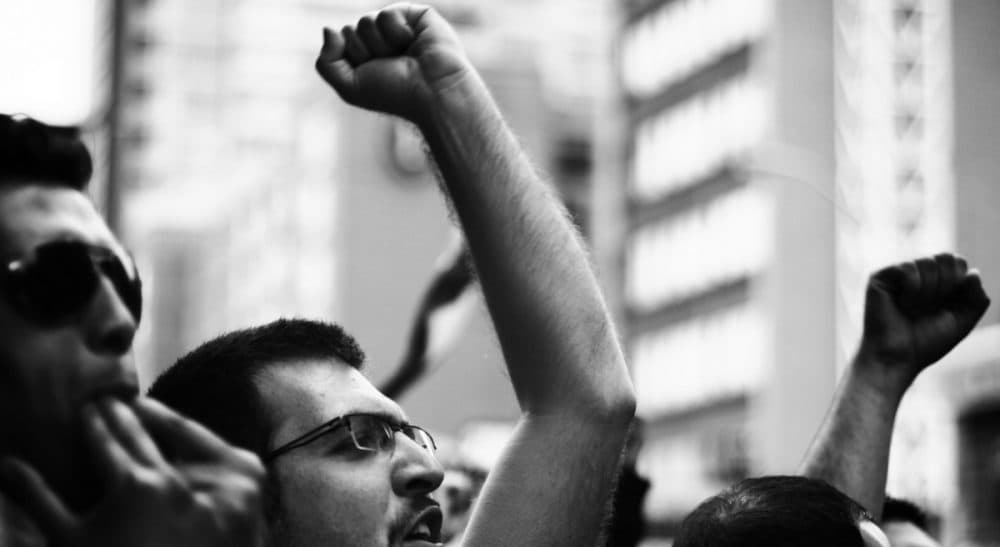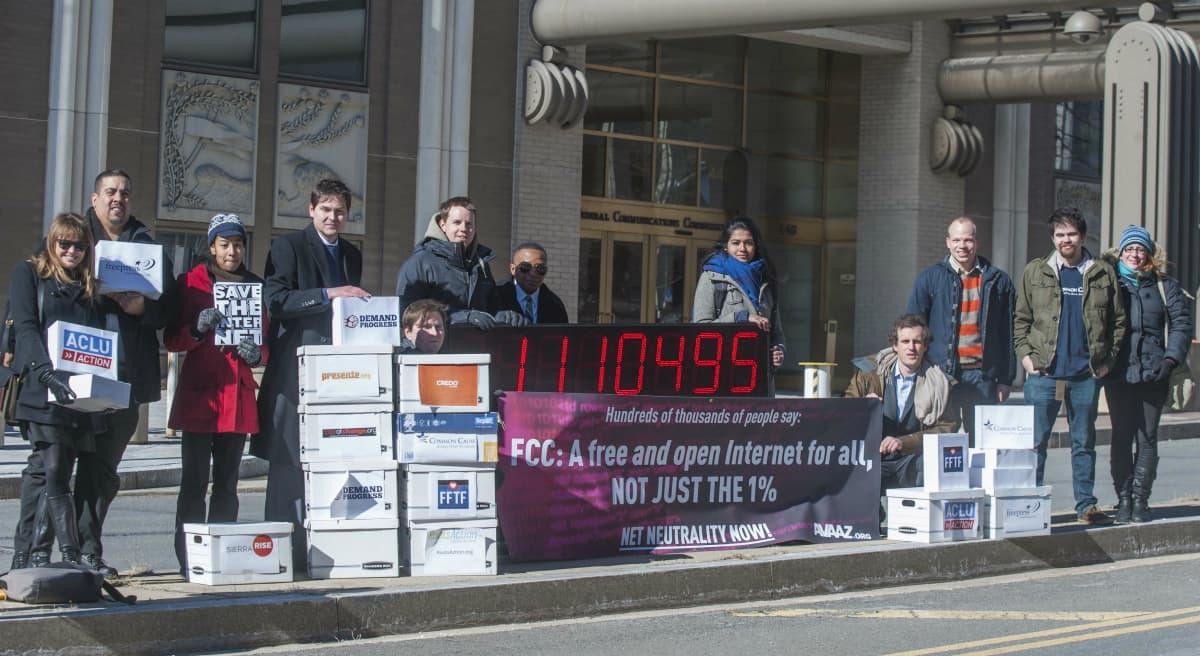Advertisement
Middle Class Revenge: What Will Big Corporations Do When The Rest Of Us Go Broke?

Recently, I went to my mailbox and retrieved a package. Inside was a T-shirt that read, “McGovern ‘72.” I can’t remember if I was trying to be ironic with this purchase or if the raging lefty in me couldn’t help but hit that “buy” button. I took it into my office and strung it across the bookshelf that greets me each time I enter.
Now I look at it and think to myself, what a fool. Or, at least I’m embarrassed by the nostalgic impulse that caused me to shell out $20 bucks. The shirt hangs there like a sad flag, a reminder of how far we’ve drifted from that once-hoped-for bright shining moment.
my beef is with the lawmakers and judges who continue to make decisions that undermine our democracy and, with it, any hope of equality.
The latest blow came last week, when the Federal Communications Commission demolished any hope of so-called net neutrality by allowing companies with deep enough pockets to, in essence, buy their way onto an Internet fast lane. This will give some companies a distinct advantage and leave their humbler competitors in the digital dust. The cost of such an upgrade will surely be passed on to consumers. Experts say the new ruling will also stymie innovation, since many start-ups will lack the capital to compete with the likes of a superfast Comcast or Netflix.
The decision struck me as emblematic of the new American way: Is there anything in this country that’s not for sale? The Supreme Court has handed our democracy over to the highest bidders; we’re still trying to recover from the crash of 2008, brought to you courtesy of the hedge fund hucksters on Wall Street; and everywhere you turn big business and the country’s richest are having their way. Now, as the FCC joins the parade, the information superhighway is getting a 14-carat makeover.
Orwell famously wrote, “If you want a vision of the future imagine a boot stamping on a human face — forever.” Little did we know that coming down on us would be the heel of a $1,700 Burluti Gaspard.

It’s no wonder that the American middle class continues to shrink. Studies show that 76 percent of Americans are living paycheck to paycheck, and 27 percent have no savings. Makes me think back to the good old days of 1989, when a typical American household took in $51,617 a year — or, $600 more than today. Meanwhile, the New York Times reports that between 1979 and 2012, typical American workers saw wage increases of just 5 percent, despite productivity growth of nearly 75 percent. This jump is, no doubt, lining someone’s pockets.
I have nothing against rich people or big corporations. No, my beef is with the lawmakers and judges who continue to make decisions that undermine our democracy and, with it, any hope of equality. I hate to go to the old liberal playbook here, but Noam Chomsky said it best: “The most effective way to restrict democracy is to transfer decision-making from the public arena to unaccountable institutions,” chief among these he listed modern corporations.
The Founding Fathers laid it down at the start: “All men are created equal.” They didn’t believe this, of course. But they meant that at least the little guy should always have a shot. This is, after all, America — the place where streets are paved with gold. They still are, only it’s getting too costly for you and me to drive them.
Yet, it’s important to remember that we vote with our wallets, and that’s the only thing that gets the attention of corporate America.
Indeed, it’s been a boom time for the wealthiest. But, here’s the thing that goes mostly unnoticed amidst the boardroom backslapping and champagne-popping parties: rank-and-file customers are losing their buying power. As our leaders continue to privilege the rights of the biggest and richest, consumers — i.e. the middle class — continue to get squeezed by the ever-rising costs of food, tuition, healthcare, surcharges, fuel, entertainment and, yes, taxes and fees. The result is that the very foundation that supports American business is vanishing — it won't happen overnight, but our ability to keep spending ourselves into the poorhouse so they can keep their penthouses is clearly diminishing. Perhaps they’ll begin to feel the heat when no one's left to buy their energy, cable service, streaming content, concert tickets, fancy clothing and electronics — or take out those cash advances, car loans and mortgages.
We don’t have to wait helplessly for this to happen. Consumers can start by cancelling services provided by any company that jumps into the new Internet fast lane. Yes, this would be a huge sacrifice. It also means that next time the revolution may not be televised or streamed over the web. Yet, it’s important to remember that we vote with our wallets, and that’s the only thing that gets the attention of corporate America.
Now, anyone want to buy a slightly used “McGovern ‘72” shirt?
Related:
